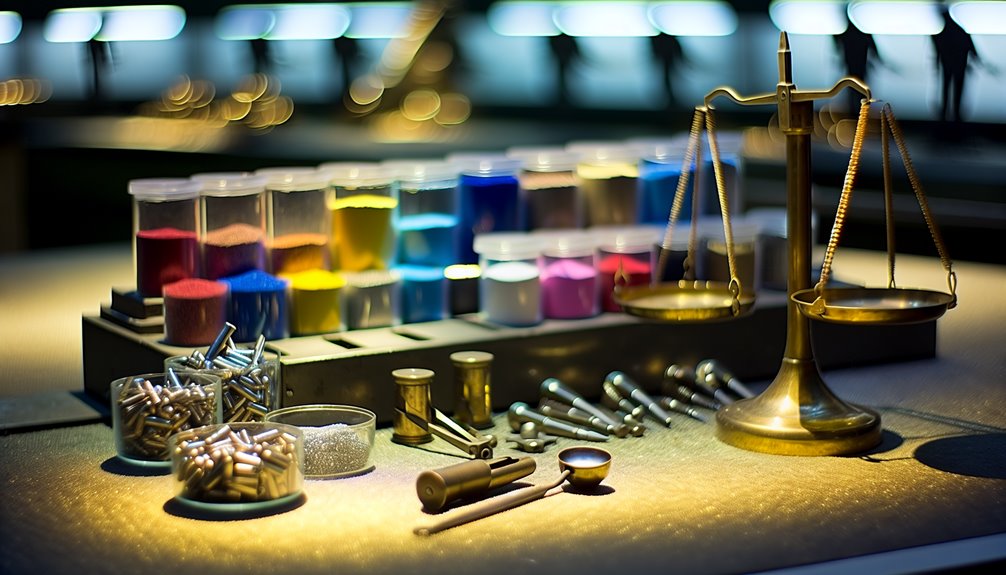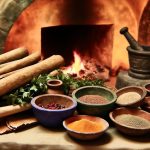A pistol bullet recipe mixing table aids in achieving ideal performance. Key components include bullet materials, powder selection, and primer compatibility. Bullet design variations impact weight retention and expansion. Choosing the right powder affects velocity and accuracy, while selecting appropriate primers for projectile weights is essential. Adjusting powder charges incrementally can lead to improved consistency. For those enthusiastic to refine their skills, exploring the nuances of bullet components opens up further insights.
Understanding Bullet Components
Understanding the intricacies of bullet components is vital for anyone involved in ammunition reloading. The choice of bullet materials, such as lead, copper, or polymer, greatly influences performance and terminal ballistics. Each material offers unique attributes, impacting factors like weight retention and expansion upon impact.
Bullet design also plays an important role; variations include full metal jackets, hollow points, and wadcutters, each tailored for specific purposes. A well-designed bullet optimizes accuracy and guarantees reliable feeding in firearms.
Choosing the Right Powder
When selecting the right powder for reloading, shooters must consider several critical factors that influence performance.
These considerations include:
- Powder Burn Rate: Different powders ignite at varying speeds, impacting velocity and accuracy.
- Powder Density: Denser powders may occupy less space in the cartridge, affecting load capacity.
- Temperature Sensitivity: Some powders perform inconsistently under varying temperatures, affecting reliability.
- Intended Use: Whether for target shooting or self-defense, the powder choice can greatly affect results.
Understanding these elements guarantees peak performance, allowing shooters to achieve their desired outcomes in various shooting scenarios.
Selecting Primers and Projectiles
Selecting the right primers and projectiles is as important as choosing the appropriate powder, as these components directly impact the reliability and performance of the ammunition. Primer types, such as small pistol and large pistol, must align with the cartridge specifications. Additionally, projectile weights affect velocity and trajectory, influencing accuracy. The table below outlines common combinations of primers and projectiles for various applications.
| Primer Type | Recommended Projectile Weights | Application |
|---|---|---|
| Small Pistol | 115-147 grains | Target shooting |
| Large Pistol | 180-230 grains | Personal defense |
| Magnum Pistol | 125-200 grains | Hunting |
Tips for Fine-Tuning Your Recipes
Fine-tuning a pistol bullet recipe requires careful consideration of various factors that influence performance.
To achieve ideal results, shooters should employ the following tips for effective recipe adjustments and testing variations:
- Start with small increments: Adjust powder charges in minor increments to observe effects on velocity and accuracy.
- Monitor environmental conditions: Changes in temperature and humidity can considerably impact performance.
- Document findings: Keep detailed records of each test to identify successful combinations.
- Experiment with different projectiles: Varying bullet types and weights can lead to improved consistency and precision.
These strategies facilitate a systematic approach to refining bullet recipes.



